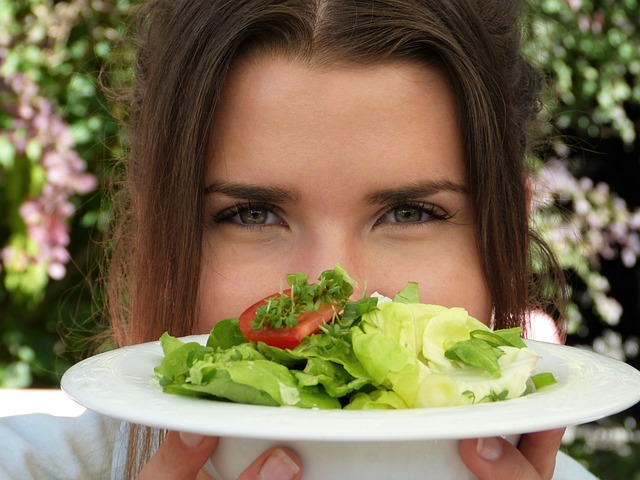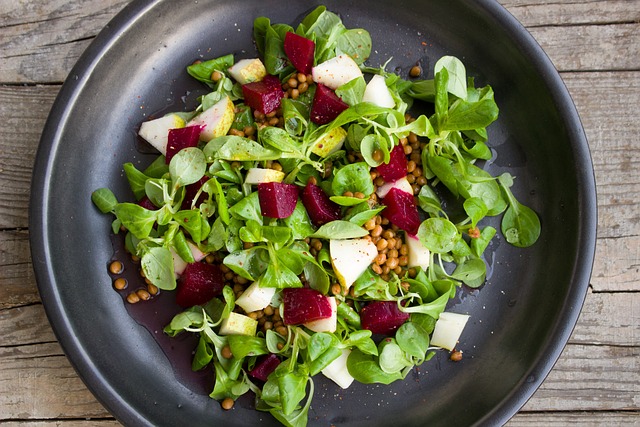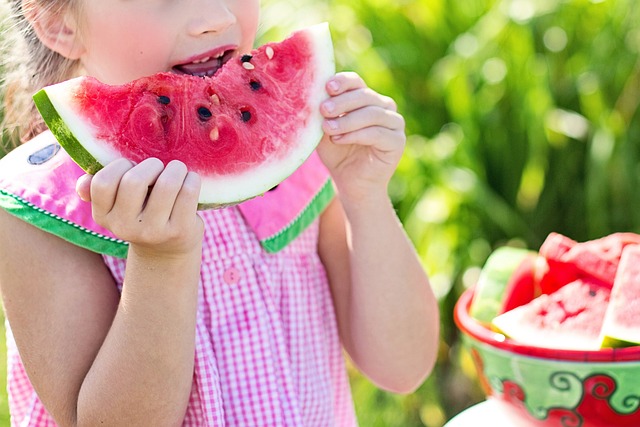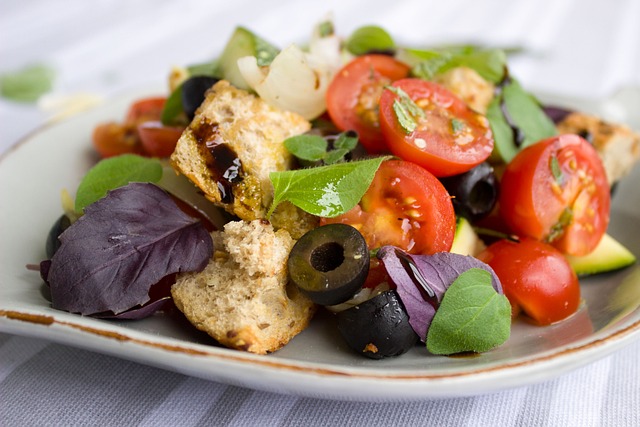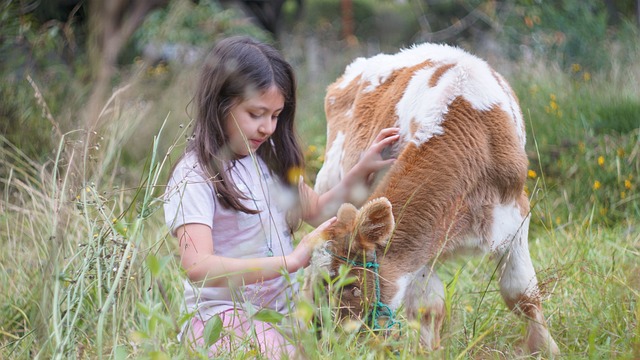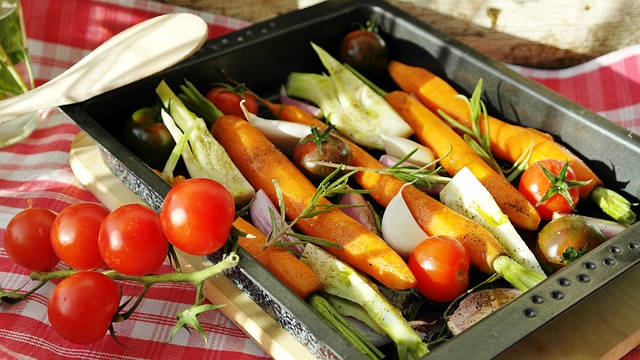Vegan Kids and the Development of Cooking Skills
Welcome to our blog post on the importance of cooking skills in kids’ development, specifically focusing on vegan kids. Cooking skills play a vital role in shaping a child’s development, helping them grow into independent and well-rounded individuals. In this post, we will explore the benefits of teaching cooking skills to kids, particularly in the context of veganism, as well as the unique challenges faced by parents raising vegan children.
Cooking skills are not only about preparing meals; they go beyond the kitchen. By learning how to cook, kids develop creativity and culinary imagination, which allows them to experiment with flavors and textures that are unique to plant-based cooking. Developing creativity in the kitchen empowers kids to think outside the box and come up with innovative and delicious meals that are both nutritious and cruelty-free.
Furthermore, cooking instills problem-solving and decision-making abilities in kids. From measuring ingredients to adjusting flavors, cooking involves a series of choices and adaptations. These skills are indispensable in everyday life scenarios and are enhanced through culinary experiences. Enhancing problem-solving and decision-making abilities early on sets the foundation for children to become resourceful individuals in the future.
Cooking also has a positive impact on a child’s confidence and self-esteem. Allowing kids to take charge in the kitchen and contribute to meal preparation not only boosts their self-confidence but also fosters a sense of responsibility and independence. As they witness the delicious outcomes of their efforts, their self-esteem grows, and they feel accomplished. Building confidence and self-esteem through cooking empowers children to take ownership of their choices and actions.
Teaching kids how to cook also promotes a healthier and more balanced diet. By involving them in meal preparation, parents can instill healthy eating habits and help develop an understanding of the importance of nutrition. Veganism emphasizes the consumption of whole, plant-based foods that are high in vitamins, minerals, and antioxidants. By actively engaging in the cooking process, kids are more likely to embrace this lifestyle and enjoy the benefits of a well-rounded, cruelty-free diet.
So, join us on this journey as we dive into the world of vegan parenting and the development of cooking skills in kids. Together, we can empower our children to be confident, creative, and conscientious individuals, all while enjoying the wonders of plant-based cooking. Stay tuned for more insights, tips, and strategies to raise vegan kids with a love for cooking.
Table of Contents
The Rise of Veganism in Children
The adoption of vegan diets among children has been on the rise in recent years. This growing trend can be attributed to several factors that have led parents to choose veganism for their kids. One of the main reasons behind this increased adoption is the growing awareness of the impact of animal agriculture on the environment. With the rise of documentaries and educational campaigns highlighting the negative consequences of animal-based diets, many parents are opting for plant-based alternatives for their children.
Another reason for the rise of veganism in children is the recognition of the health benefits associated with a plant-based diet. Studies have shown that vegan diets, when properly planned, can provide all the necessary nutrients for children’s growth and development. Additionally, a well-balanced vegan diet can help prevent childhood obesity, lower the risk of chronic diseases, and contribute to overall better health.
Furthermore, parents are also influenced by their own dietary choices and ethical beliefs. As more adults embrace veganism, they are likely to pass on their values and beliefs to their children. Vegan parents believe in reducing harm to animals and empathize with the suffering of animals raised for food. They want to instill these values in their kids from an early age, making veganism a natural choice for their family.
The rise of veganism in children can also be attributed to the availability of vegan-friendly products and resources. Supermarkets and restaurants have recognized the demand for plant-based options and are offering a wider range of vegan products specifically designed for children. Additionally, there are numerous online resources, cookbooks, and cooking classes tailored to vegan kids, making it easier for parents to find inspiration and guidance in raising their children on a vegan diet.
In conclusion, the rise of veganism in children is a multifaceted phenomenon driven by environmental concerns, health benefits, ethical considerations, and the availability of resources. As parents become more informed about the impact of their food choices, they are increasingly choosing vegan diets for their children. This growing trend not only benefits the health and well-being of kids but also contributes to a more sustainable and compassionate future.
Benefits of Cooking Skills for Kids
Teaching kids how to cook has numerous benefits for their development. By developing creativity and culinary imagination, children are able to explore new flavors and experiment with different ingredients. This not only expands their taste preferences but also encourages them to think outside the box when it comes to preparing meals.
Cooking also enhances problem-solving and decision-making abilities. When kids are faced with various ingredients and recipes, they have to think critically and make choices about what to make and how to make it. This helps them develop their decision-making skills and learn to navigate through challenges in the kitchen.
In addition, cooking helps in building confidence and self-esteem. When kids learn how to prepare meals on their own, they experience a sense of accomplishment and pride. They become more self-reliant and feel a sense of confidence in their abilities. This confidence extends beyond the kitchen and can positively impact other areas of their lives as well.
One of the most important benefits of cooking skills is that they encourage a healthier and more balanced diet. When children are involved in the cooking process, they become more invested in the food they eat. They are more likely to choose nutritious ingredients and understand the importance of a well-balanced meal. This can lead to better eating habits and a lifelong appreciation for healthy food.
Furthermore, cooking fosters a sense of responsibility and independence in kids. They learn the importance of following recipes, using kitchen tools safely, and cleaning up after themselves. These skills not only contribute to their overall development but also prepare them for adulthood and instill a sense of independence.
In conclusion, teaching cooking skills to kids provides them with a multitude of benefits. From developing creativity and problem-solving abilities to enhancing confidence and promoting healthier eating habits, cooking serves as a valuable tool in their overall development. By encouraging kids to get involved in the kitchen, parents can empower them to become independent, responsible, and well-rounded individuals.
Challenges of Raising Vegan Kids
Raising vegan children comes with its own set of challenges that parents need to address. These challenges can range from limited availability of vegan-friendly ingredients to the need for balancing nutritional needs and ensuring adequate protein and essential nutrients for growing kids. Additionally, parents may also face the task of overcoming societal stigmas and misconceptions surrounding vegan diets.
Limited availability of vegan-friendly ingredients
One of the challenges faced by parents raising vegan children is finding a wide variety of vegan-friendly ingredients. While the availability of vegan products has increased in recent years, there may still be limited options in certain areas. Parents need to be resourceful and creative when it comes to meal planning and grocery shopping, ensuring that their children have access to a diverse and nutritious range of plant-based foods.
Balancing nutritional needs and ensuring adequate protein and essential nutrients
Another challenge is ensuring that vegan kids receive all the necessary nutrients for their development. Protein, iron, calcium, and vitamin B12 are some of the key nutrients that parents need to pay attention to. With careful planning and a well-balanced diet, it is possible to meet these nutritional needs through plant-based sources. However, parents may need to consult with healthcare professionals or registered dietitians to ensure their children’s diets are nutritionally sufficient.
Overcoming societal stigmas and misconceptions surrounding vegan diets
Parents raising vegan children often have to navigate societal stigmas and misconceptions surrounding vegan diets. Some may worry about their child’s ability to thrive on a plant-based diet or face criticism from others who may question the adequacy of such a diet. It is important for parents to educate themselves and others about the benefits and nutritional adequacy of vegan diets for children. By providing evidence-based information and leading by example, parents can help dispel myths and misconceptions about veganism.
Overall, while there are challenges involved in raising vegan children, it is important for parents to approach these challenges with an open mind and a willingness to adapt. By addressing the limited availability of ingredients, ensuring nutritional needs are met, and combating societal stigmas, parents can successfully navigate the unique challenges of raising vegan kids and provide them with a healthy and fulfilling culinary journey.
Incorporating Cooking Education into Vegan Parenting
Cooking skills are not only beneficial for kids’ development but also essential for their long-term well-being. When it comes to raising vegan children, incorporating cooking education into parenting becomes even more crucial. Teaching kids how to cook not only empowers them to prepare their own meals but also educates them about plant-based nutrition and fosters a love for healthy and compassionate eating habits.
Involving kids in meal planning and grocery shopping is an excellent way to introduce them to different ingredients and encourage their participation in food choices. Parents can take their children to the grocery store and let them pick out fruits, vegetables, and other plant-based products. This involvement allows kids to understand where their food comes from and develop a sense of responsibility towards their dietary choices.
Creating a safe and child-friendly cooking environment is essential to promote a positive and enjoyable cooking experience for kids. Parents can make sure that the kitchen is organized and equipped with age-appropriate utensils and tools. By creating a comfortable space, kids can have the freedom to explore and experiment without fear of accidents, fostering their confidence in the kitchen.
Establishing age-appropriate cooking tasks and responsibilities is crucial in building the progression of cooking skills. Parents can start by assigning simple tasks like mixing or measuring ingredients, gradually moving on to more complex skills like chopping vegetables or sautéing. This gradual progression allows kids to develop their culinary abilities while feeling a sense of accomplishment as they take on increased responsibilities.
Encouraging experimentation and trying new recipes is a great way to spark kids’ creativity and boost their interest in cooking. Parents can provide cookbooks and online resources with vegan-friendly recipes and encourage their children to choose and prepare new dishes. This not only enhances their cooking skills but also expands their palate and helps them discover a variety of delicious and nutritious plant-based meals.
Utilizing online resources and vegan cooking classes can provide additional guidance and support for parents and their vegan kids. There are numerous websites, blogs, and social media platforms dedicated to vegan cooking, where parents can find recipes, tips, and tricks. Additionally, online cooking classes specifically designed for kids can further enhance their cooking skills and knowledge.
By incorporating cooking education into vegan parenting, parents can equip their children with valuable skills that go beyond the kitchen. They will learn about the importance of sustainable food choices, develop a sense of empathy towards animals, and raise awareness about the environmental impact of their diet. Moreover, teaching cooking skills to vegan kids enables them to become self-sufficient and confident individuals who can make informed decisions about their health and dietary choices.
As parents, it is important to embrace and support our vegan children’s culinary journeys. By doing so, we are not only nurturing their passion for cooking but also instilling lifelong skills and values that will benefit them in the long run. Let us encourage other parents to join us in raising vegan kids with a love for cooking and a commitment to a compassionate and sustainable lifestyle.
Promoting Veganism beyond the Kitchen
One of the remarkable benefits of teaching kids how to cook vegan meals goes beyond just preparing delicious and healthy food. Cooking skills can be leveraged to promote a broader understanding and appreciation for the vegan lifestyle.
By incorporating veganism into their daily routines, children can develop empathy and a deeper understanding of animals. Encouraging empathy and understanding towards animals is an essential aspect of raising vegan kids. When children are involved in cooking and meal preparation, they become more connected to the origins of their food, understanding that it comes from animals and the importance of treating them with respect and compassion.
Moreover, cooking skills provide an opportunity to raise awareness about the environmental impact of food choices. When kids actively participate in cooking plant-based meals, they learn the positive effects of choosing vegetables, grains, and legumes over animal products. They become aware of the carbon footprint associated with animal agriculture, deforestation, and water pollution caused by the meat industry. This awareness can lead to making more sustainable choices, reducing their environmental impact, and contributing positively towards a greener planet.
Teaching kids how to cook vegan meals also empowers them to become advocates for animal rights and sustainable living. As they develop their culinary skills, they gain firsthand knowledge of the cruelty-free options available and how their choices can make a difference in the lives of animals. They become vocal advocates who can make informed decisions and educate others about the benefits of veganism.
In conclusion, promoting veganism beyond the kitchen is a crucial aspect of raising vegan kids with a love for cooking. By highlighting the broader benefits of vegan cooking skills, such as encouraging empathy and understanding towards animals, raising awareness about the environmental impact of food choices, and advocating for animal rights and sustainable living, parents can empower their children to become compassionate individuals who make conscious choices for themselves and the planet. So let’s inspire others to join this movement and embrace a vegan lifestyle filled with delicious, cruelty-free meals.
Conclusion
In conclusion, developing cooking skills in vegan kids is of utmost importance in their overall development. It not only allows them to prepare their own meals but also provides numerous benefits that contribute to their growth and well-being.
We encourage parents to embrace and support their children’s culinary journeys. By involving them in meal planning, grocery shopping, and cooking, parents can guide their kids towards a healthier and more balanced diet. Through this involvement, children will develop not only creativity and culinary imagination but also problem-solving and decision-making abilities.
Moreover, cooking skills instill confidence and self-esteem in kids, fostering a sense of responsibility and independence. By teaching them about the limited availability of vegan-friendly ingredients and balancing their nutritional needs, parents can help their children overcome the unique challenges of being vegan. They can also overcome societal stigmas and misconceptions surrounding vegan diets by advocating for animal rights and sustainable living.
To incorporate cooking education into vegan parenting, parents can establish age-appropriate cooking tasks and responsibilities for their children. They can create a safe and child-friendly cooking environment that encourages experimentation and trying new recipes. Additionally, they can utilize online resources and vegan cooking classes to enhance their children’s culinary skills.
Furthermore, promoting veganism beyond the kitchen is crucial. By encouraging empathy and understanding towards animals and raising awareness about the environmental impact of food choices, children learn to make conscious decisions that contribute to a sustainable future.
In conclusion, by raising vegan kids with a love for cooking, parents empower their children to become self-sufficient and compassionate individuals. We hope this post has inspired you to embark on this journey and encourage others to do the same. Remember, this outline is just a starting point, and you can always customize and expand upon it as needed.


